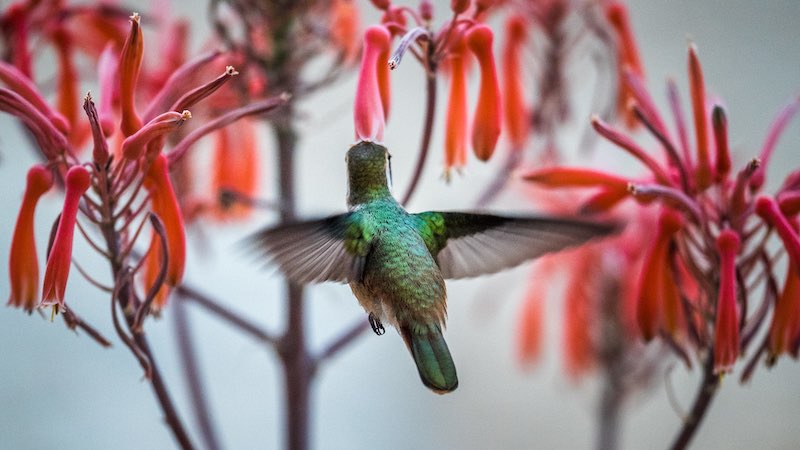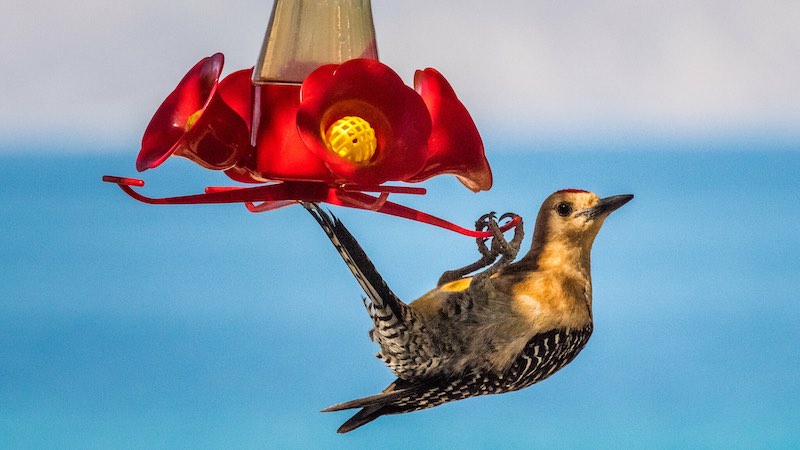Updated Dec 12, 2022 – Down here in Baja where my wife and I own a wee abode to escape the chilly Canadian winter weather, we are seeing lots of new houses going up. Some of the local folks are even blaming an apparent decline in our songbird populations on all of this construction. But it is not fair of us to roll up the carpet and tell others that they cannot enjoy our neighborhood too. So… what to do? How can we build our homes but also keep the birds here?

If you are building a new home down here, and you do care about the birds, here are some tips on how to minimize the impact of construction on their populations:
- First, find out about the relevant rules and regulations that protect wildlife in your country and make sure that your contractor is aware of them. In fact, before even buying a property, make sure that there are no endangered species nesting, living or growing on it so that you do not get taken to court. In some environmentally protected areas in our two villages, it is actually illegal to remove cardon cacti and elephant trees!
- Second, once you have your property, encourage your architect and builder to leave as much of the natural vegetation on the building site as possible. Birds absolutely need this for feeding and nesting. Destroy all the natural vegetation and the birds will simply go elsewhere. At the very least, replant the area with native vegetation preferred by birds and remove any exotic or invasive plant species.
- Third, make sure your contractor has a plan for dealing with both solid waste and hazardous waste from the construction and that he or she does not just dump it locally in the bush.
- Fourth, minimize soil erosion from water and wind to prevent soil loss.
- Fifth, try to schedule construction activities so as to minimize conflict with the birds’ breeding season; you may need to consult with a local biologist on this. At the very least, make an attempt to minimize light and noise pollution during the birds’ breeding activities.
Why should we care about birds? Birding (AKA bird-watching) continues to be one of the fastest growing hobbies in North America. One in five of us spends an average of over 100 days a year watching, monitoring, feeding, filming, or photographing the 900 or so different kinds of birds in the U.S. and Canada, almost doubling those into gardening. Birds, being so numerous, so colourful and so diverse, are likely the most common types of wild animals we see on a regular basis. More than a quarter of our households have installed feeders and bird houses in our backyards and almost ten percent of us have bought bird identification books and binoculars and taken trips specifically to see birds and attend hundreds of bird festivals all over North America. That is big bucks for our economy!
But it’s not about the money! Birds do a lot for humans. They eat pests, pollinate our plants and crops, disperse seeds; their eggs and meat (yes, chickens are birds!) feed us and their feathers keep us warm. They have even helped us win wars by teaching our military about flight, camouflage, sentry systems, and acting as vital message carriers. Birds have saved human lives not just by serving as literal ‘canaries in coal mines’ but also by globally warning us of other environmental health hazards such as carcinogenic pesticides and industrial by-products. And sadly, it took the unbelievable senseless annihilation of literally billions of passenger pigeons on our continent to help promote a burgeoning conservation movement and herald a new era of environmentalism.

However, we also celebrate birds because of their intrinsic value. Who can deny that birds entertain us in so many ways with their beauty, their song and their flight? How many great writers, artists, film-makers, and even aviators and astronauts were inspired by these amazing unique creatures?! If you ask a bird-watcher what they see in birds, they might respond by saying “What does one see in the works of Shakespeare, the paintings of Van Gogh, or the music of Mozart?” In short, a world without birds will not just be a biologically diminished world but also an emotionally diminished one. And if we lose our birds, we will lose ourselves.
David M. Bird, Ph.D. Emeritus Professor of Wildlife Biology, Department of Natural Resource Sciences, McGill University – david.bird@mcgill.ca www.askprofessorbird.com